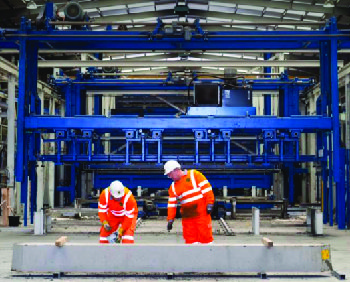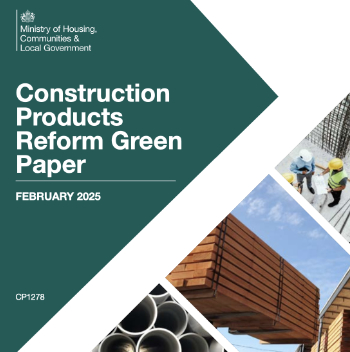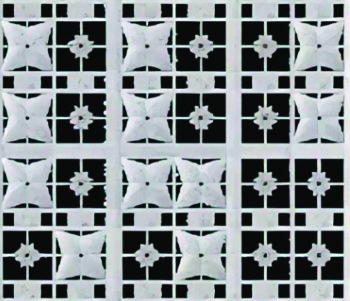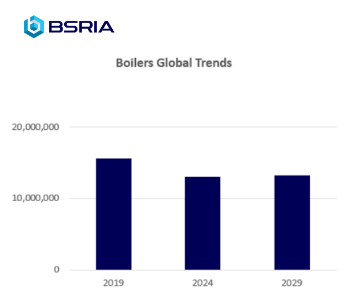Time certainty

|
Construction projects are often seen to be a balance between three related performance indicators; time, cost and quality. Generally, an increace in quality will result in an increase in cost and time, a reduction in time will result in an increase in cost and so on.
For clients and contractors in the construction industry, time certainty is one of the most important performance criteria.
Time certainty is the likelihood that even before a project starts, but also during the project, it will be completed within the required time. Time certainty is also affected by cost certainty which is the likelihood that a project will be completed within the budgetary requirements.
Construction clients often hold these two concepts as their top priorities as delays and cost overruns can lead to higher costs for the client and a possible diminished relationship between client, contractor, occupants, customers and so on. For contractors, an excessive time extension to the project programme may mean lower than expected profits and a diminution of reputation and competitiveness.
Construction projects tend to be high-risk undertakings which very frequently generate time and cost overruns. Typical factors that can delay a project include:
- Clients making sudden changes and introducing variations.
- Slow decision-making.
- Unforeseen ground conditions.
- Delays in material supply.
- Inclement weather.
- Disputes.
- Defects.
- Changes in market conditions.
A 1996 study by the Construction Industry Board (CIB) revealed that time certainty (and also cost certainty) is more often than not likely to be under the contractor’s control. This is mainly because time overruns are frequently seen to be:
- Symptomatic of poor management.
- The contractors’ inability to predict and control the time needed to complete a project.
- Inaccurate material estimating.
- Poor labour productivity.
- Inadequate planning.
- Poor site management.
If delays occur on a project, contractors are impacted almost immediately by additional costs resulting from:
- Increases in overheads.
- Hiring more operatives.
- Longer plant-hire periods.
- Storage of materials.
- Delayed payments from the client or penalties.
In their paper ‘Cost Certainty and Time Certainty: An International Investigation’ (Hong Xiao and David G Proverbs), time certainty was found to be largely dependent on first, cost certainty and second, the importance contractors allocate to cost, comparing them to the two sides of the same coin; neglecting one will have an adverse effect on the other. Also, the authors maintain that projects completed on time are those where the contractor realises there is no other option and so does as much as possible to bring this about.
Greater planning input by the contractor is also known to have a positive effect on improving project performance (Faniran et al., 2001) and is why faster projects are usually found to be cheaper at the tender stage, punctual to deadlines and completed to customers’ satisfaction (NEDO, 1988).
A possible indicator of a contractor’s time certainty is that delays on previous similar projects are likely to reoccur on future projects. A good reputation is therefore critical for time certainty performance.
Generally time certainty improves as a project progresses, as there are fewer remaining risks that could affect project completion.
[edit] Related articles on Designing Buildings Wiki
- Acceleration of construction works
- Adverse weather during construction
- Certificate of non completion
- Common refusals of extensions of time
- Completion date in construction contracts
- Concurrent delay
- Contract administrator for construction contracts
- Contractor delay.
- Defects in construction
- Delays on construction projects
- Extension of time - approval letter example
- Force majeure in construction
- How to prepare a claim for an extension of time
- Liquidated damages in construction contracts
- Loss and expense
- Nominated sub-contractor
- Octoesse LLP v Trak Special Projects Ltd
- Practical completion
- Prolongation in construction contracts
- Reasonable time.
- Relevant event
- Relevant events v relevant matters
- Relevant matters in construction contracts
- Time at large
- Variations in construction contracts
Featured articles and news
CIOB Construction Manager of the Year 2025
Just one of the winners at the CIOB Awards 2025.
Call for independent National Grenfell oversight mechanism
MHCLG share findings of Building Safety Inquiry in letter to Secretary of State and Minister for Building Safety.
The Architectural Technology Awards
AT Awards now open for this the sixth decade of CIAT.
50th Golden anniversary ECA Edmundson awards
Deadline for submissions Friday 30 May 2025.
The benefits of precast, off-site foundation systems
Top ten benefits of this notable innovation.
Encouraging individuals to take action saving water at home, work, and in their communities.
Takes a community to support mental health and wellbeing
The why of becoming a Mental Health Instructor explained.
Mental health awareness week 13-18 May
The theme is communities, they can provide a sense of belonging, safety, support in hard times, and a sense purpose.
Mental health support on the rise but workers still struggling
CIOB Understanding Mental Health in the Built Environment 2025 shows.
Design and construction material libraries
Material, sample, product or detail libraries a key component of any architectural design practice.
Construction Products Reform Green Paper and Consultation
Still time to respond as consultation closes on 21 May 2025.
Resilient façade systems for smog reduction in Shanghai
A technical approach using computer simulation and analysis of solar radiation, wind patterns, and ventilation.
Digital technology, transformation and cybersecurity
Supporting SMEs through Digitalisation in Construction.
Villa Wolf in Gubin, history and reconstruction. Book review.
Construction contract awards down one billion pounds
Decline over the past two months compared to the same period last year, follows the positive start to the year.
Editor's broadbrush view on forms of electrical heating in context.
The pace of heating change; BSRIA market intelligence
Electric Dreams, Boiler Realities.
New President of ECA announced
Ruth Devine MBE becomes the 112th President of the Electrical Contractors Association.
























